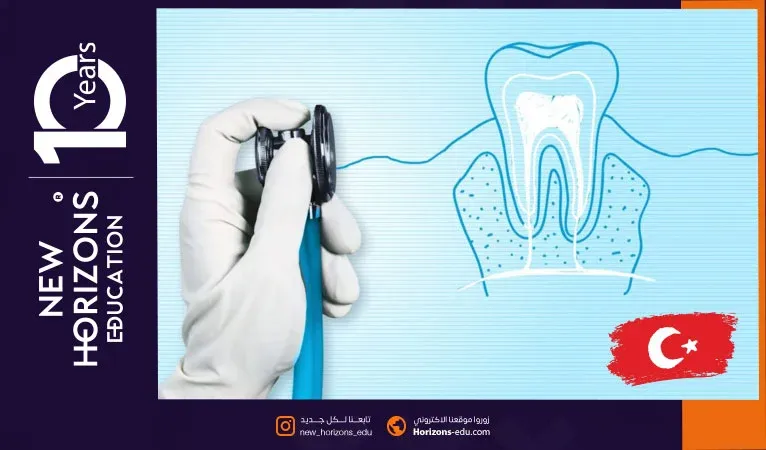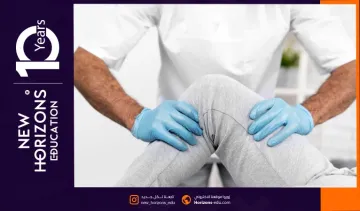
Turkiye has reached a great degree of progress in many fields, including the medical field, starting with increasing the number of schools and universities and ending with the establishment of medical cities throughout Turkiye.
This progress was reflected in the development of curricula, the development of universities, and the increase in agreements between Turkish universities and international universities in order to exchange experiences, which made Turkish universities rank in an advanced ranking in the international classification.
Dentistry is considered one of the most important specialties which students want to join and study in Turkish universities.
The first dental college in Turkiye was founded in 1908 by Amirullah Effendi, Minister of Education. In 2002, the number of colleges teaching dentistry reached 18, then this number doubled in the last 15 years to reach 84 colleges throughout Turkiye.
Studying dentistry in Turkish universities takes 5 years, and if the student does not obtain a degree in the language, the study is extended by a year and is called the preparatory year for the language, whether it is Turkish or English.
In the first and second years, the student studies basic sciences such as biological sciences, mathematics, physics and chemistry, as well as basic medical sciences such as anatomy, physiology and histology.
After that, dental sciences are taught, which depend on basic sciences such as: Restorative dentistry, prosthetic dentistry, in addition to health sciences, computer applications, and oral and dental radiology.
As for the last three years, the study takes place practically in the clinics and laboratories provided by the university so that the student gains experience and prepares for the labor market.
Jaw anatomy.
medical biology.
organic chemistry.
behavioral science.
anatomy.
biostatistics.
biophysics.
dental history.
medical genetics.
metabolism.
stent dentistry.
prosthetic dentistry.
heart and respiratory system.
infectious diseases and immunity.
nervous system.
research methods.
preventive dentistry.
orthodontics.
glands and excretory system.
pathology.
oral biology.
pharmacology.
artificial dentistry.
orthodontics.
radiology in dentistry.
oral and dental surgery.
preventive oral medicine for children.
work ethics.
oral growth.
periodontal disease.
restorative dentistry.
psychology.
oral diseases.
eye diseases.
skin diseases.
neurology.
dental edema.
forensic medicine.
general surgery.
management of health centers.
First aid in dentistry.
oral imaging.
When you study dentistry in Turkish universities, you will find many dental specialties in Turkiye, including:
Prosthodontics.
Fixed bridges and implants.
Fixed and removable prosthetics.
Dental treatment and repair.
Preventive dentistry.
Orthodontics.
Oral and maxillofacial surgery.
Pediatric dentistry.
Gum disease.
The requirements to study dentistry in Turkish universities vary from one university to another.
Private universities do not require this Additional conditions: It is sufficient for the student to have obtained an average of 70% or 75% in some other universities. When the student chooses the English language, he will attend for an additional year to prepare for this language if he is not proficient in it.
As for government Universities, they require a minimum average of 90% in the general secondary school certificate and to undergo some tests such as the Turkish YÖS test and the American SAT.
When the student chooses to study in the English language, he is required to obtain a TOEFL certificate and a TOMER certificate if he chooses the Turkish language. It is worth noting that the number of seats for international students is much less compared to the number of applicants.
In addition to
Passport.
Official high school transcript.
High school diploma.
Motivation letters .
Medical examination.
Visa requirements.
Many international students want to study dentistry in Turkish universities thanks to its limitless advantages, including:
Education in Turkish universities is of high quality and relies on sophisticated and advanced study programs.
Turkish universities rely on the best faculty members with great experience.
There are many Turkish universities that teach dentistry and are recognized by many European countries.
Dentistry specialization is available in Turkish universities in English or Turkish to facilitate the student’s study in the language he is proficient in.
Turkiye has paid great attention to the specialty of dentistry by increasing the number of universities that teach this specialty.
Increasing the number of laboratories in dental colleges and working to develop them.
Read also: Advantages of studying in Turkey
The costs of studying dentistry are high in Turkish universities compared to other countries.
The study of dentistry in Turkish universities is only available in English and Turkish.
The number of seats for international students to study dentistry in Turkish universities is very small compared to the total number of seats in Turkish universities.
Studying the specialty of dentistry in Turkish universities is not available in most Turkish universities, and the demand for it is increasing, which has led to an increase in the tuition fees for the specialty.
Turkiye has many universities which provide high quality education in dentistry in all levels of study ( bachelor's - master's - PhD) which makes Turkiye a very preferable destination for all international students who want to study dentistry in Turkish universities.
These universities include:
stanbul Okan University.
Istanbul Aydin University.
Medipol University.
Yeditepe University.
Bilgi University.
The costs of studying dentistry in Turkiye vary depending on whether the university is public or private. In public universities, expenses range from 1,000 to 1,500 Turkish liras per year, in addition to other expenses for purchasing equipment that the student needs during his studies.
The more the student advances in the years of study, the less these expenses decrease. Students can buy used tools from their previous students or borrow them, and study expenses in the final year may be zero.
As for private universities, the tuition costs for dentistry specialization increase, reaching from 15,000 to 30,000 dollars per academic year, in addition to other expenses for tools, as we mentioned in public universities.
Read also: The average cost of living in Turkiye in 2025
It is also possible to study dentistry in Turkish universities through scholarships offered by public and private universities
1.Scholarships to study dentistry in government universities.
2.Scholarships to study dentistry at private universities
The student can study the specialty of dentistry in private Turkish universities through prepaid scholarships, meaning that the student pays the full tuition fees for the years he will study in advance and thus obtains a 50% discount on the total tuition costs.
Studying dentistry in Turkish universities is considered one of the somewhat difficult specializations that requires diligence and study from the student first and foremost. It is worth noting that Turkish universities seek, through their academic programs, to facilitate study by relying on distinguished academic cadres who can deliver information to the student in the simplest ways.
Providing advice on studying in Turkiye and choosing the appropriate major.
Helping students apply to Turkish universities for free.
Ensuring admission to the appropriate university according to the student’s qualifications.
Helping students apply for university scholarships and discounts.
Guiding the student through the process of obtaining a student visa.
Providing suitable housing options according to the student’s budget.
Organizing a reception service upon arrival in Turkiye.
Providing support in obtaining student residency and health insurance.
Helping you register in courses to learn the Turkish or English language that are appropriate for you.
Continuous follow-up of the student throughout the study period and providing continuous educational consultations.
Contact us now for more information about studying in Turkey.
Turkey is considered one of the leading countries in teaching many fields and specializations, including dentistry, which attracts many students to study dentistry in Turkish universities because of its advanced methods and modern scientific means and techniques in education. In addition to the facilities provided by Turkish universities to students in order to facilitate the academic process, which makes them attractive to international students from all over the world.
5 years is the duration for studying dentistry in Turkish universities.
The costs of studying dentistry in private universities in Turkey range from 9,000 to 20,000 US dollars annually.
Best Countries to Study Dentistry Europe is home to many of the world's most respected colleges, with the best universities in the Netherlands, Sweden, the UK and Switzerland.
Ankara university, Baskent university, Ankara medipol university, Biruni university, and Istanbul kent university.
After many years of working on registering thousands of students in Turkish universities, and answering an unlimited number of questions about studying in Turkey, these are the most important questions that concern students
The average salary of a cybersecurity employee in Turkey is around 62,000 TRY per month, and it can reach up to 104,000 TRY per month for experts with more than three years of experience.
The basic admission requirements for Acibadem University in 2025 are a high school diploma with a 90% average for Medicine and 60% for other majors, along with a transcript and a passport.
Ada Kent University is ranked 13th locally and 22,411th globally, according to the official 2025 Ad Scientific Index ranking.
Yes, you can get a 10% cash discount on the tuition fees for the Medicine program, reducing the cost to $19,125 instead of $25,000.
No, the requirements are easy. A high school diploma with a 60% average and a passport are sufficient, and you can apply without a language certificate.

How to study human medicine in Turkey? Is Turkey a good option for studying human medicine? You may...

Studying medicine for Iraqis in Turkey is one of the most attractive options for Iraqi studen...

Human medicine specializations in Turkey is considered one of the most important specialties in the...

How to study physiotherapy at Mudanya University? In our guide of studying physiotherapy at M...